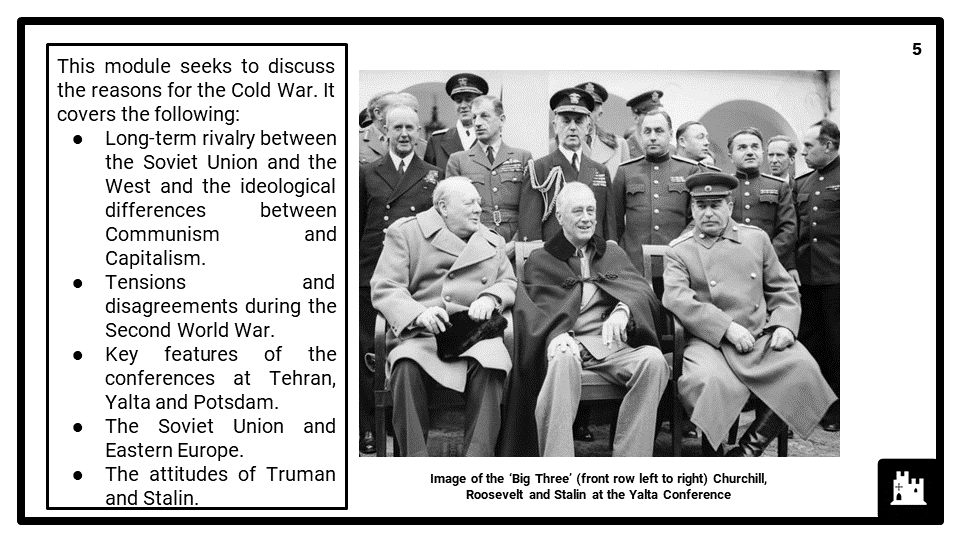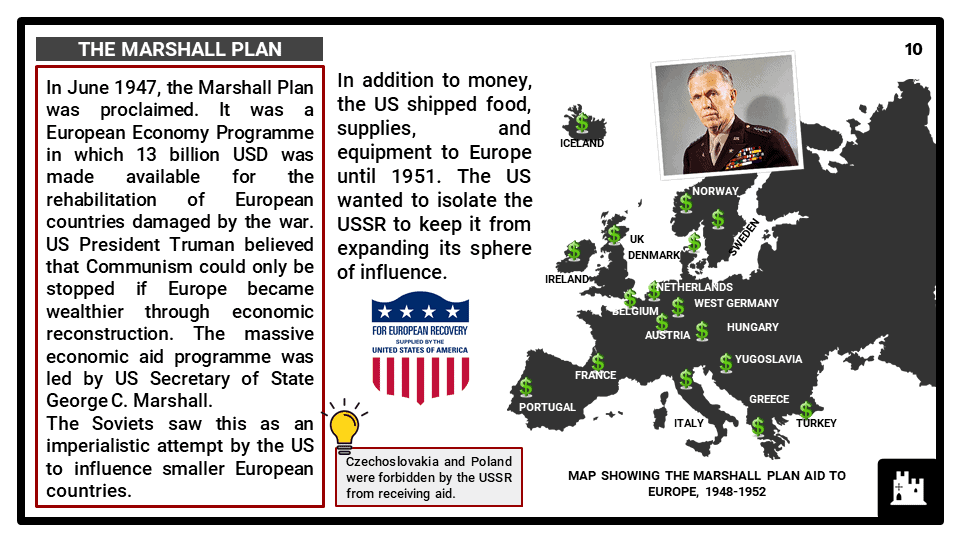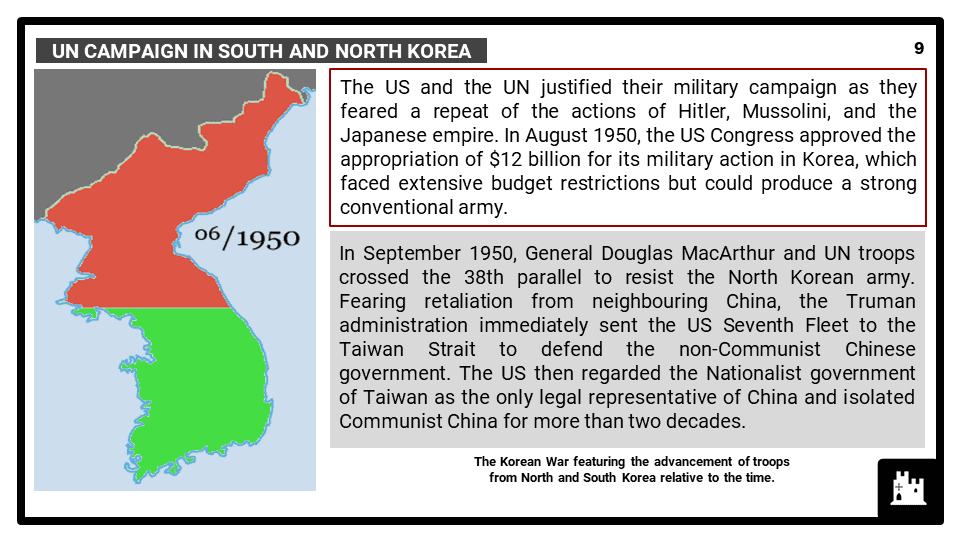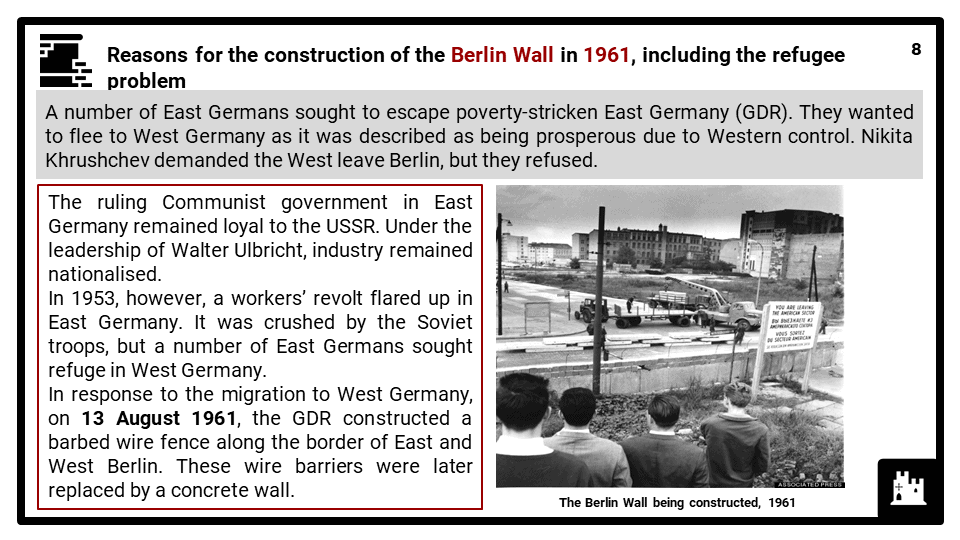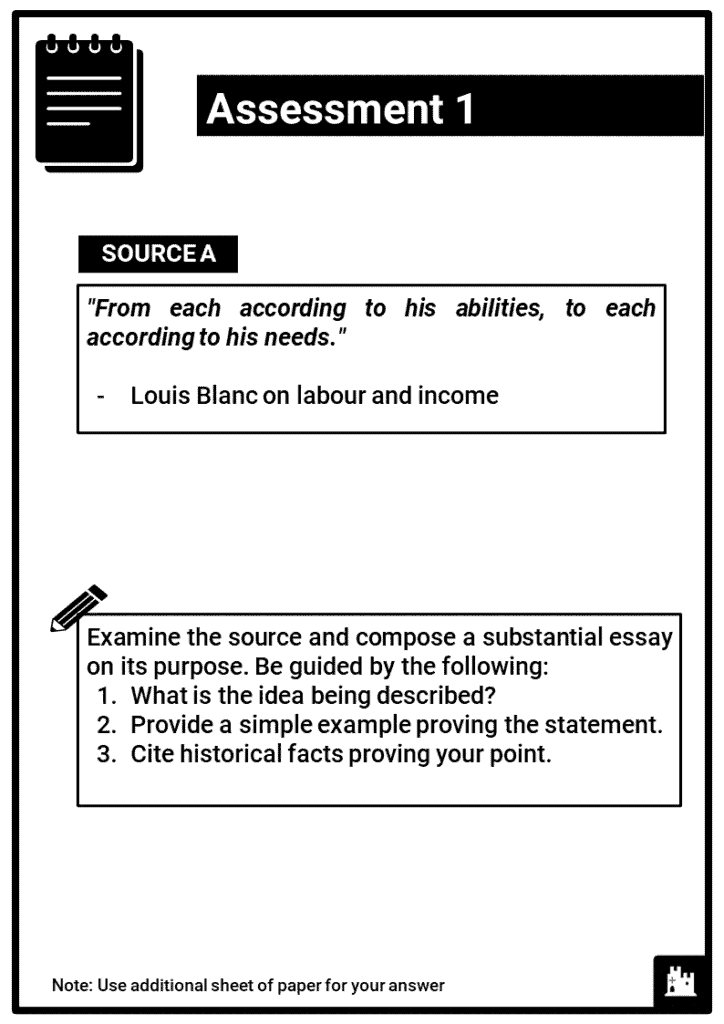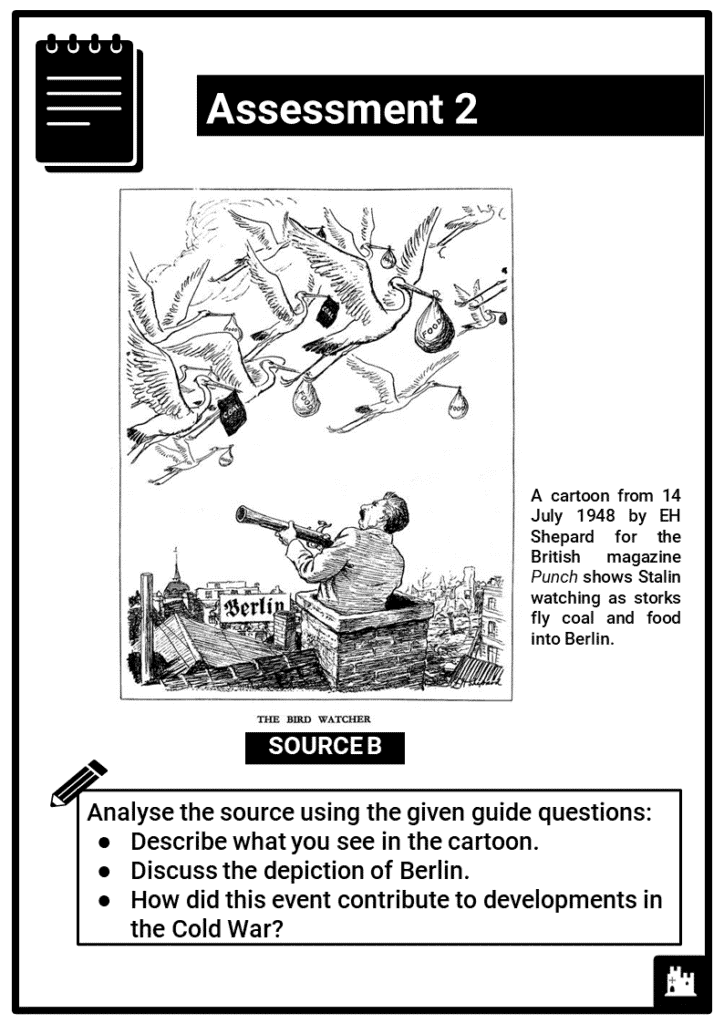Teach any Edexcel IGCSE module: A world divided: superpower relations, 1943–72, no prep needed!
Do you want to save dozens of hours in time? Get your evenings and weekends back? Be fully prepared to teach any Edexcel iGCSE topic?
Every Edexcel iGCSE topic is covered, and each module comes complete with:
Paper 1:6 A world divided: superpower relations, 1943–72
For this history module, students need to learn about:
Reasons for the Cold War
- Long-term rivalry between the Soviet Union and the West and the ideological differences between Communism and Capitalism;
- Tensions and disagreements during the Second World War;
- Key features of the conferences at Tehran, Yalta and Potsdam;
- The Soviet Union and Eastern Europe;
- The attitudes of Truman and Stalin
Early developments in the Cold War, 1945–49
- Soviet expansion in Eastern Europe. Churchill and the ‘iron curtain’;
- The Truman Doctrine and the Marshall Plan;
- Cominform and Comecon. Disagreements over Germany including Bizonia;
- Causes, events and results of the Berlin Crisis (1948–49), including the setting up of NATO and the creation of two Germanys: the Federal Republic (FRG) and the Democratic Republic (GDR)
The Cold War in the 1950s
- The impact of the Korean War and the formation of the Warsaw Pact;
- Khrushchev and peaceful co-existence;
- The impact of Soviet rule on Hungary, Rakosi, de-Stalinisation, Nagy and his demands. Reasons for the Soviet invasion of Hungary, its effects and the international reaction;
- The nuclear arms race and its impact on superpower relations
Three crises: Berlin, Cuba and Czechoslovakia
- The U2 incident (1960) and its effects on the Paris Summit Conference;
- Reasons for the construction of the Berlin Wall in 1961, including the refugee problem;
- The effects of the Berlin Wall on relations between East and West Germany and between the Superpowers;
- The Bay of Pigs invasion, the causes and key events of the Cuban Missile Crisis and the reasons for its outcome;
- The Soviet invasion of Czechoslovakia – its causes, events and impact, including the Brezhnev Doctrine
The Thaw and moves towards Détente, 1963–72
- The thaw: ‘Hotline’, Test Ban Treaty, Outer Space Treaty and Nuclear Non-proliferation Treaty;
- Reasons for Détente;
- SALT talks and treaty;
- The extent of Détente in 1972

